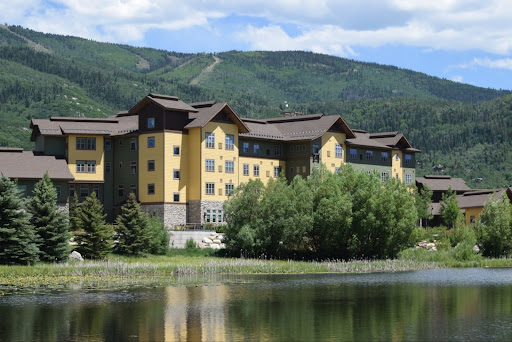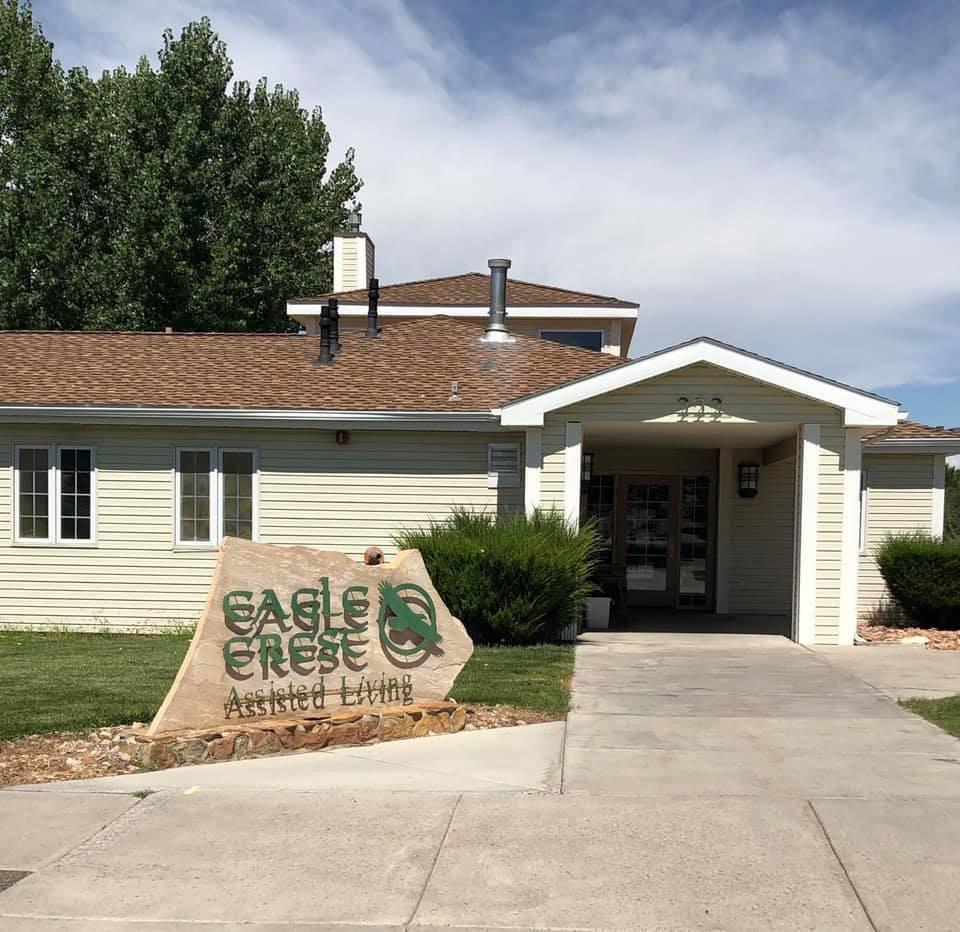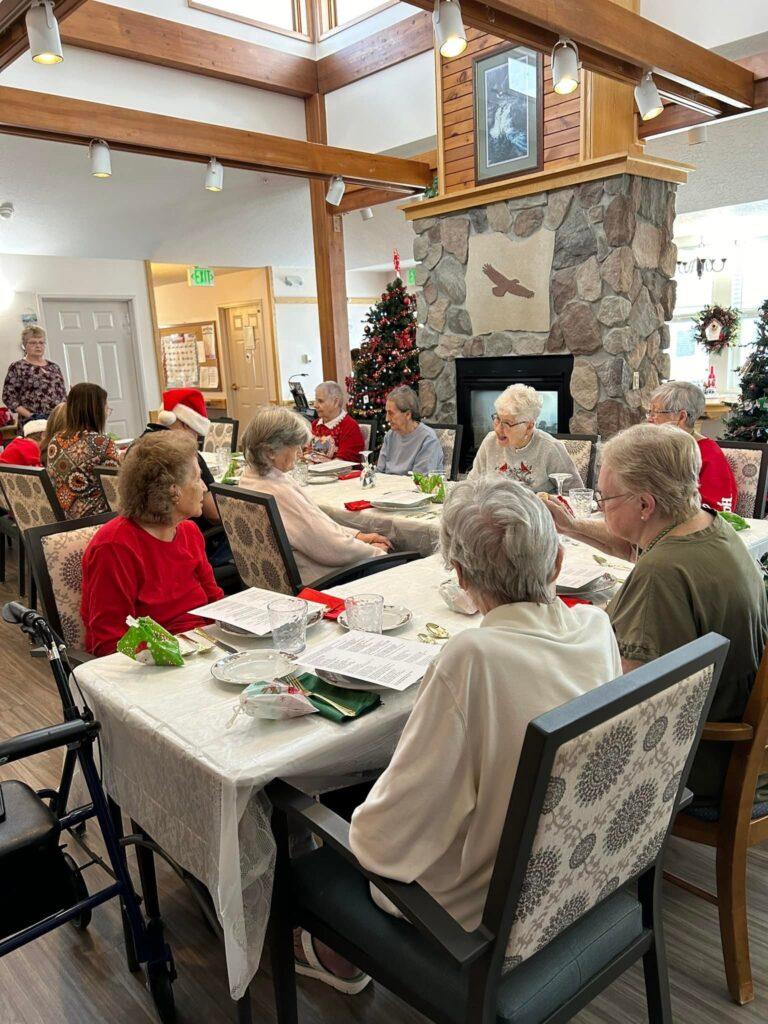
Updated at 9:09 a.m. on Monday, November 4, 2024.
A senior living facility in Steamboat Springs will stay open after the community raised millions to buy it from the receivership.
Casey’s Pond was deeply in debt when Bellann Raile, managing director at Cordes & Company, an insolvency advisory firm, was appointed the receiver. Located near hotels and condos in a resort community, the facility seemed destined for a future in tourism rather than senior living.
“Casey's Pond had already been marketed as a senior facility and it was unsuccessful,” Raile said. “So in my eyes, it was very likely to be sold for another use. It is at the base of a ski hill. It's very attractive to a lot of other uses.”
The facility's residents were told they might have to move. But then, the community rallied. A coalition including the Yampa Valley Community Foundation, the city of Steamboat Springs, Routt County, and a host of individuals, raised millions of dollars to purchase Casey's Pond, and keep it open for seniors.
Raile said there was a lot of excitement about saving a place for older residents in this mountain town.
“It's really part of the community,” she said. “Their moms and dads live there. Or they're intending to move their moms and dads there, or intending on living there themselves. So that was going to be a big loss for the community.”
Casey’s Pond is now run by Northwest Colorado Health, which also owns The Haven Assisted Living in nearby Hayden.
It’s a story with a happy ending in the Yampa Valley. But across rural Colorado - where one in five residents is over 65 - senior living facilities can be hard to find.
Fifteen percent of counties in the United States are aging and disability service “deserts,” meaning they have no senior centers, adult community centers, or social services organizations providing non-medical home care, according to a study.
“That means people have to leave their home to go find somewhere else to live, to get the care that they need,” said Tammy Dunker, secretary and treasurer of the Colorado Rural Health Center, the state's office of rural health.

A town that values having a place for seniors, and is willing to pay for it
Dunker knows first-hand the challenges that face rural senior facilities. She’s the director of Eagle Crest Assisted Living in Rangely, a town in Rio Blanco County with around 2,400 residents. Dunker credits town leadership for seeing the need for this senior living facility, which has room for 20 and is affiliated with Rangely District Hospital, and for implementing financial support.
“If it were not for the mill levy that the residents of Rangely pay on their property taxes, Eagle Crest would not be here,” said Dunker. “It is a service we provide to the community and our seniors here.”
“So Rangely is very fortunate that we have what we have,” she said.

Most of the residents at Eagle Crest are from Rangely, Dunker said. Some even moved away from the town over the years but returned to live at the facility. Eagle Crest offers three meals a day, cleaning, laundry, and medication management. A sense of community can be key to good health.
“I mean, loneliness is a horrible thing and actually has been shown to lead to a higher risk for dementia. So I think we provide companionship, and they become our family,” Dunker said.
| Whether you're aging yourself or caring for someone who is, what questions do you have? Email us at [email protected] or leave a voicemail at 303-871-9191 X 4480. |
Even with tax support, there are challenges for rural senior care. Staffing is one
Hiring in the healthcare industry is difficult generally and that holds true in rural areas. Pay is a big issue; Dunker said some workers can earn as much or even more at local convenience stores and fast food chains. And the work requires empathy, caring, and the level of meticulousness needed to handle medication.
“So I feel like when we do find these special people that have that calling to care for the residents the way they do here in Rangely, I try to make sure that they understand how precious and important they are to our residents and to our administration,” she said.
Housing crisis complicates hiring
High housing costs are not just a problem in urban areas. Rangely can be hard for Dunker’s staff to afford.
“In fact, I just actually lost an employee that had to move because she could not find affordable housing. By affordable housing, I mean not $2,000 a month. You can't pay people $16 an hour and then charge them $2,000 a month for rent,” she said. “So housing in this state is a huge issue.”
Dunker herself commutes 25 miles each way, from her home in Dinosaur.
Transportation to healthcare can require herculean efforts
Older residents at Eagle Crest are fortunate to have the Rangely District Hospital nearby for medical care. But to access certain specialists, they face a long drive.
“Transportation is a huge issue for anyone living rural,” Dunker said.
Rural assisted living facilities like Eagle Crest try to assist older people with transportation, but Dunker said if residents don’t have family nearby to help, it can really be a struggle. Older people in Rangely may need to go to Grand Junction for specialist care.
“It's about two hours over Douglas Pass. I don't know if you've ever experienced Douglas Pass, but in the wintertime, it can be - sometimes it's not even possible. It's closed down,” Dunker said. “So to get to the care you need, that's a huge challenge for all rural, not just our town.”
| This story is a part of Aging Matters, a series from Colorado Matters about the Centennial State's aging population. Read more stories here. |
Assisted living is expensive, even in small towns
One of the biggest challenges older residents in rural areas face when hoping to access assisted living is simply the expense. The average cost of assisted living in Colorado is $5,000 a month.
“And that's just the average,” said Dunker. “Usually that's the base that doesn't even come with the services of medication management, or if they require some other specialty skill type level to care for them.”
For example, memory care costs more. It also requires special licensing, which Eagle Crest doesn’t have. The facility can provide care for people with limited memory issues, but not once the condition progresses.
“So if they were a wandering risk, they would have to be placed out of our facility,” she said.
Towns with assisted living give older people options to stay in their rural communities
While everyone ages differently and makes different plans for where they want to live, Dunker emphasized that having an assisted living facility in town gives Rangely residents options.
Eagle Crest is a place where they can receive a higher level of support, maintain their independence, and stay in their rural community.
“It's just so neat to see everybody interacting together, like at holidays and stuff when all the families come. And I mean, it's a packed house,” she said. “Eagle Crest I think is just a very special place that I don't think you're going to find everywhere. I think rural areas have the best opportunity to create those special communities for their elderly.”

Editor's note: A previous version of this story incorrectly identified the owner of Casey's Pond. It is Northwest Colorado Health, not Northwest Community Health.









